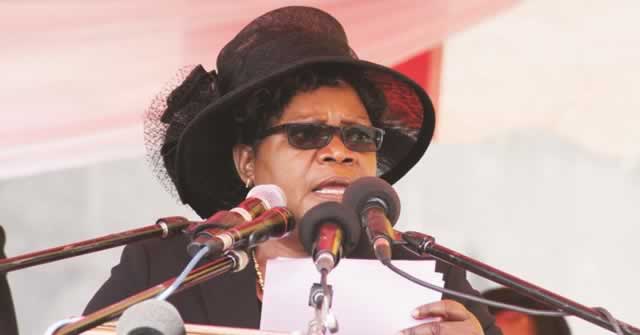Tony Blair deserves criticism

Blessing Miles Tendi
Noam Chomsky, Sir Richard Dalton and? Clare Short are among the heavyweights who have called for Tony Blair to be dismissed as the Middle East envoy for the Quartet (UN, EU, Russia and America), tasked with facilitating peace between Palestine and Israel. Their open letter was published to coincide with the seventh anniversary of Blair’s appointment as the Quartet’s peace envoy. An accompanying online petition called Sack Blair, which describes the former British prime minister’s role as peace envoy as an “insult”, has so far garnered over 20 000 signatures.
Blair’s office has responded to the open letter by branding its authors as far right and staunch left “people viscerally opposed to Tony Blair with absolutely no credibility in relation to him whatsoever”.
All this represents the latest round of trenchant public backlash over Blair’s perceived responsibility for the current instability in Iraq, because his 2003 military invasion is seen as the root cause of ongoing upheaval there and his lack of tangible results after seven years as the Quartet’s peace envoy.
Blair appears to have few supporters left, as a steady stream of critics old and new emerges from the political closet to point out the negative legacies of his interventionist policies.
Last year former South Africa president Thabo Mbeki even alleged that Blair had sought his assistance in staging a military intervention in Zimbabwe to remove President Mugabe from power.
Britain had even identified people in the Zimbabwean military who they were going to put in place to succeed Mugabe
Mbeki repeated this allegation in an article published this week. According to Mbeki: “Tony put maximum pressure on me from 2000 to agree to a military invasion of Zimbabwe, and he was going to base his troops here (in South Africa), and we said no.
“It is not going to happen. If the Zimbabweans do not like Bob Mugabe they will remove him, not you. Britain had even identified people in the Zimbabwean military who they were going to put in place to succeed Mugabe. In the end they gave up because of our resistance.”
Invading Zimbabwe would have had disastrous consequences for the UK’s military and diplomatic standing. Field Marshal Charles Guthrie, then chief of the defence staff, warned officials in Downing Street and the Foreign Office:
“Zimbabwe is landlocked. It would be hard to supply and resupply and some of the kind of people we would have to protect (persecuted white farmers) were spread throughout Zimbabwe. So if you protect one lot here the other lot there will probably be killed.
“And the other thing was, there was not a single African country that would approve of what we were doing. They would say, here goes Britain again. Neo-colonialists all over again. We would have made things much worse by going in there.”
Blair, who was steeped in interventionist ideals about fighting global “evil”, certainly overreached his authority. But while he deserves to be reproached for his failures in Iraq and Zimbabwe, we should not overlook some of the very real foreign policy successes he scored.
Moreover, in light of events in Iraq particularly, there is a growing unhelpful tendency in current public debates to see military intervention as inherently bad. But there are times when military intervention is necessary and viable — for instance, Blair’s military intervention in Sierra Leone in 2000 helped to resolve the country’s crisis.
Above all, we must not forget the necessity of intervention in cases of genocide. The world did not intervene militarily in Rwanda in 1994 to stop the genocide — at a cost of 800 000 dead.
Intervening militarily in Kuwait in the 1990s was also the right thing to do because you cannot have leaders marching into other countries to take them over.
It was also correct for the UK military to go into Afghanistan to destroy al-Qaida camps — although it would have been possible to destroy these camps and leave; there was no need for troops to remain.
So amid all the (richly deserved) Blair bashing let’s not wholly discredit military intervention, which can be the best course of action. What is more, when does the debate move from simple criticising to accountability?
Will Blair ever be held to account for how he (mis)led the UK into war against Iraq, as well as for the negative outcomes of some — yes, only some — of his military interventions? — The Guardian.







Comments